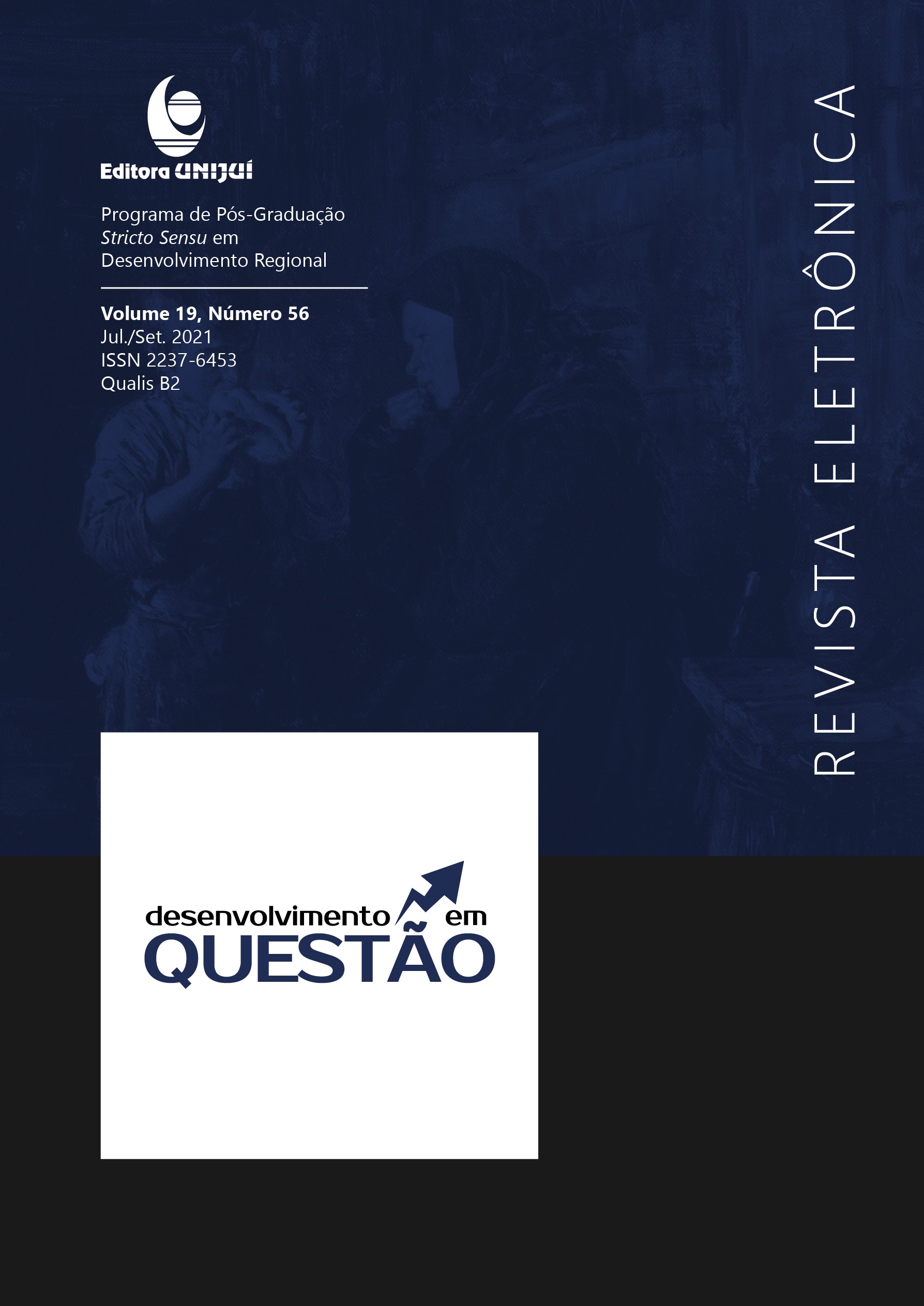Relations and Influences in the Process of Conventionalization of Organic Markets in the Southern Region of Brazil: A Multilevel Perspective Analysis
RELAÇÕES E INFLUÊNCIAS ENTRE ATORES DO MERCADO ORGÂNICO NA REGIÃO SUL DO BRASIL: UMA ANÁLISE EM PERSPECTIVA MULTINÍVEL DO PROCESSO DE CONVENCIONALIZAÇÃO-BIFURCAÇÃO
DOI:
https://doi.org/10.21527/2237-6453.2021.56.11261Palabras clave:
Organic Market Conventionalization, Bifurcation, Relations, Influences.Resumen
The organic markets from all around the world are changing fast. An example is the proliferation of standards and the entrance of new actors in the organic market, as the processors. In this paper, organic farmers, agro industries, retailers, consumers, and rural extension agents were consulted through qualitative research methods to better understand these changes and to assess the conventionalization-bifurcation process of organic markets in the Southern Region of Brazil. The relations and influences that exist between these actors were identified and analyzed. The theoretical approach used in this study comes from the Multilevel Perspective. This approach sustains that a novelty, like organic farming, can produce radical or incremental changes in a socio-technical regime, as the dominant agro-food regime, while connections between both are built. We observed that these relations and influences are of three main types: outsourcing and elongation of supply chains; restrictions in the commercialization of the farmer’s production; and the consequences, adjustments and commercial conditions established through contracts with retail chains besides commercialization in alternative networks. Through these findings, we identified a bifurcation in the organic markets where some actors demonstrate practices similar to agrifood dominant regime. In this process, the regime is changing, but so are the alternative networks. It indicates that once again the alternative agriculture is capable of reaffirmation by some ways.
Descargas
Publicado
Cómo citar
Número
Sección
Licencia
Ao publicar na Revista Desenvolvimento em Questão, os autores concordam com os seguintes termos:
Os trabalhos seguem a licença Creative Commons Atribuição 4.0 Internacional (CC BY 4.0), que permite:
Compartilhar — copiar e redistribuir o material em qualquer meio ou formato;
Adaptar — remixar, transformar e criar a partir do material para qualquer fim, inclusive comercial.
Essas permissões são irrevogáveis, desde que respeitados os seguintes termos:
Atribuição — Atribuição — os autores devem ser devidamente creditados, com link para a licença e indicação de eventuais alterações realizadas.
Sem restrições adicionais — não podem ser aplicadas condições legais ou tecnológicas que restrinjam o uso permitido pela licença.
Avisos:
A licença não se aplica a elementos em domínio público ou cobertos por exceções legais.
A licença não garante todos os direitos necessários para usos específicos (ex.: direitos de imagem, privacidade ou morais).
A revista não se responsabiliza pelas opiniões expressas nos artigos, que são de exclusiva responsabilidade dos autores. O Editor, com o apoio do Comitê Editorial, reserva-se o direito de sugerir ou solicitar modificações quando necessário.
Somente serão aceitos artigos científicos originais, com resultados de pesquisas de interesse que não tenham sido publicados nem submetidos simultaneamente a outro periódico com o mesmo objetivo.
A menção a marcas comerciais ou produtos específicos destina-se apenas à identificação, sem qualquer vínculo promocional por parte dos autores ou da revista.
Contrato de Licença (para artigos publicados a partir de 2025): Os autores mantêm os direitos autorais sobre seu artigo, e concedem a Revista Desenvolvimento em Questão o direito de primeira publicação.











